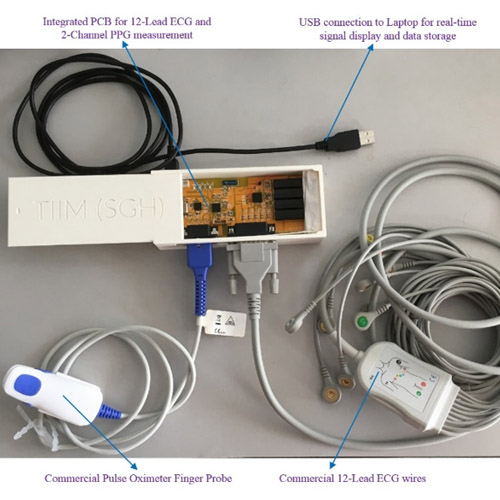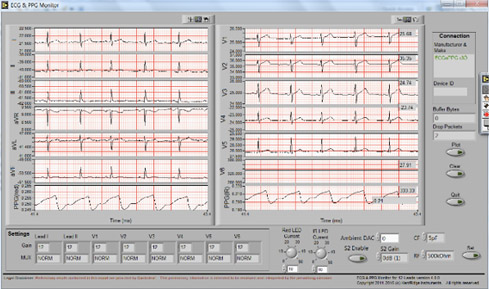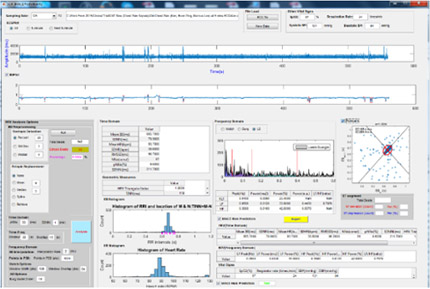aiTriage™ Intelligent system for real time risk stratification of major adverse cardiac events
Chest pain is a common but non-specific complaint presenting to the Emergency Department (ED) for assessment. Most patients are well, but a subset of patients will go on to have a Major Adverse Cardiac Event (MACE), which can result in sudden death. It is a difficult process (time consuming, complex and dependent of years of experience) to differentiate and triage those who will progress to these serious outcomes from less immediately dangerous conditions.
SGH research team led by A/Prof Marcus Ong Eng Hock have piloted and patented an intelligent cardiac risk stratification system (aiTRIAGE™) that incorporates heart rate variability (HRV), electrocardiogram (ECG) parameters and vital signs into a novel scoring system for rapid, real-time risk stratification of MACE. The set of physiological parameters are collected and analysed using a clinical-based algorithm to accurately and reliably triage cardiac risk, specifically differentiating MACE from other less urgent medical conditions. This is faster and less prone to human error than traditional approaches. Published data by the team validate the approach and has additionally verified that aiTRIAGE™ is better at predicting risk of MACE than Thrombolysis In Myocardial Infarction (TIMI) and Modified Early Warning Score (MEWS), which are the gold standard assessments currently used in clinical settings. Also, TIMI score requires an adequate medical and drug history as well as cardiac biomarker levels, which are often not available at first presentation. aiTRIAGE™ which assesses the early risk of developing severe complications, will be useful in making critical observation, treatment, and disposition decisions at the ED.
The importance of MACE and the potential impact of a prediction of MACE in patients presented with chest pain, has allowed the SGH study team to be awarded with the National Health Innovation Centre (NHIC), Innovation to Develop (I2D) grant of 250,000.00 SGD for a period of 1 year. With the support of NHIC grant, 12 sets of own-customized prototypes had been specifically developed for data collection in clinical trial where PC-based software have been developed accordingly for signal acquisition, feature extraction and MACE risk prediction. A start-up company, TIIM Healthcare Pte. Ltd., was established in Nov. 2017, which is also awarded as one of the top 4 winners of Tech Factor Challenge 2016-2017. As a follow up from the NHIC grant and recommended by NHIC, the research team is currently working with DxD hub on an exploratory project to refine and clinically validate aiTRIAGE™ system.
aiTRIAGE™ is suitable for large-scale deployment across healthcare facilities. Hence, the market potential of the intelligent risk stratification device is high. Due to it being responsive, accurate and cost-effective, GP and community clinics can effectively offer the service to distinguish between those who require urgent treatment of serious problems and those who do not have life-threatening conditions, potentially without requiring immediate admission to hospital. Additionally given the portability of this technology, it can also be developed for use on high risk individuals for early identification and management if a situation of risk is identified. Evolution to self-monitoring provides the potential for lower costs via early diagnosis and intervention and less pressure on the emergency health care system. This simplicity offers the potential to substantially increase quality of care in developing countries especially in rural and remote areas where access to appropriately experienced HCPs to assess the clinical parameters may be more limited.

Fig.1 Prototype developed under NHIC grant for multiple vital signs monitoring

|

|
Fig.2 PC-based software developed under NHIC grant for signal display, HRV parameters extraction and MACE risk prediction

